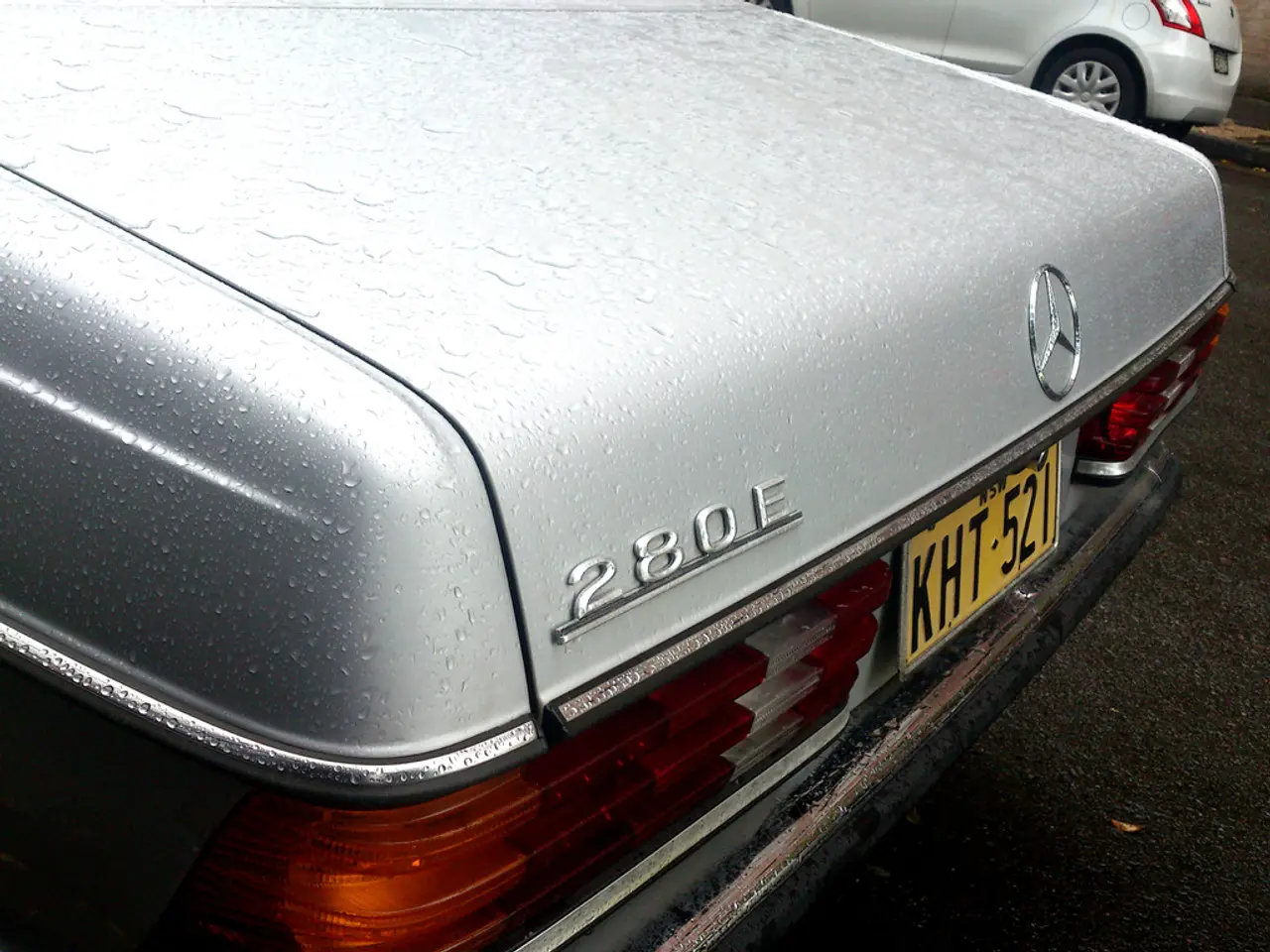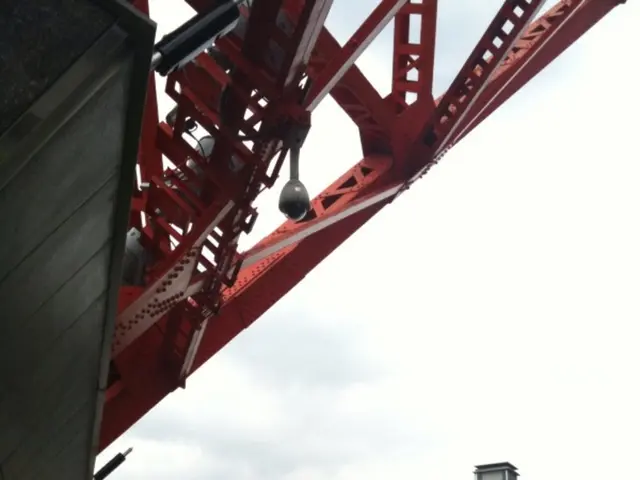Electric Mercedes-Benz EQS model powered by solid-state battery completes journey of 749 miles on a single charge in testing.
Mercedes-Benz Breaks Distance Record with Solid-State Battery Technology
Mercedes-Benz has made a significant stride in electric vehicle technology, setting a new record for the automaker with a 1,205-kilometer (749-mile) drive from Stuttgart, Germany to Malmö, Sweden. This accomplishment surpasses Mercedes-Benz's previous achievement of 747 miles set on a 2022 Stuttgart-to-England run.
The record-breaking journey was made possible by the use of solid-state battery technology, a breakthrough that Markus Schäfer, Mercedes-Benz Board Member, believes delivers both in the lab and on the road. This technology was developed in collaboration with engineers at Mercedes and the American battery specialist startup, Factorial Energy.
The solid-state battery in the "lightly modified" Mercedes EQS test vehicle is equipped with pneumatic actuators to respond to changes in cell volume during charging and discharging. Additionally, passive airflow cooling is used to reduce weight and enhance energy efficiency. As a result, the usable energy capacity of the solid-state battery was increased by 25% compared to the standard EQS battery.
Remarkably, the test vehicle completed the trip without a single charging stop, arriving in Malmö with 137 km remaining in the tank. The weight and size of the solid-state battery remain comparable to the standard EQS battery.
The Stuttgart-Malmö drive is part of a comprehensive validation program for solid-state battery technology at Mercedes-Benz. This program includes digital simulations and testing at facilities in Stuttgart and Sindelfingen. The goal of the validation program is to assess overall vehicle performance across different climate zones and route profiles.
The solid-state battery system was developed in collaboration with Mercedes-AMG High Performance Powertrains (HPP), the Formula 1 technology center of the Mercedes-Benz Group in Brixworth, UK. Schäfer also expressed the goal of bringing innovations like solid-state battery technology into series production by the end of the decade.
This impressive feat by Mercedes-Benz not only showcases the potential of solid-state battery technology but also underscores the automaker's commitment to pushing the boundaries of electric vehicle technology.
Read also:
- Elon Musk Acquires 26,400 Megawatt Gas Turbines for Powering His AI Project, Overlooks Necessary Permits for Operation!
- U Power's strategic collaborator UNEX EV has inked a Letter of Intent with Didi Mobility to deploy UOTTA(TM) battery-swapping electric vehicles in Mexico.
- Commercial-grade hydrogen enhancement systems manufacturing initiated by H2i Technology
- Toyota strikes a deal in Shanghai for a solely owned Lexus electric vehicle production plant.







